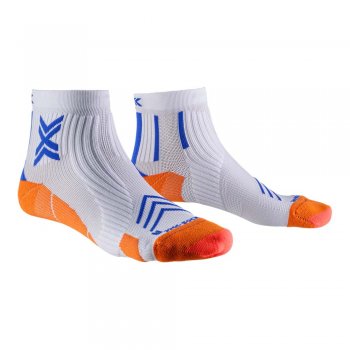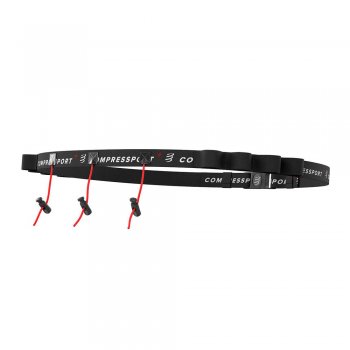What to eat after training?

Have you had another intense training session? Are you exhausted after a long run? Read and find out what to eat after exercise to quickly regain strength and get back to action.
It turns out that what we eat after training and at what time interval after exercise we eat food has a significant impact on the effect of our sports competition. Therefore, it is worth taking a closer look at what ends up on our plates after running.

The regenerative role of food
At the very beginning, it is worth realizing that training wreaks considerable havoc on our body. There is a significant drop in blood glucose levels, we lose a lot of fluids and with them minerals. An hour of running, depending on our body weight and intensity of exercise, ranges from 400 to 1000 kcal. During strenuous training, the muscle fiber structures undergo micro-damage. This is quite a lot for one time, which is why each training requires appropriate regeneration. In addition to rest, understood as the lack of intense physical activity, food also comes to the aid of our body.
Post-workout meals serve several important functions:
• replenishing energy losses,
• providing ingredients to rebuild damaged muscle structures,
• hydration,
• replenishing the loss of mineral compounds,
• providing vitamins and compounds supporting regeneration.
As you can see, the post-workout meal is of great importance for our body. There is no proper regeneration without it and therefore it cannot be skipped. The question is: when and what is the best time to eat?
When to eat a post-workout meal?
The time of the meal after training depends mainly on the time of day it took place and the entire schedule of our daily diet. Generally speaking, such a meal should be eaten within 2 hours after training. If this interval is really extended as much as possible, it is a good idea to eat fruit or drink a glass of fruit juice within 30 minutes after the end of training. This will be the first injection of energy in the form of simple sugars, which will allow us to wait for the proper meal.
People who train early in the morning often eat breakfast after training, treating it as a post-training meal. For those who train in the afternoon after work, such a meal is often dinner. It is important to always eat a properly prepared dish after training. What if we train late in the evening?
Many people believe that they should not eat anything at that time because it is late. Nothing could be further from the truth! Every training requires regeneration. The size of such a dinner should, of course, be adapted in terms of calories to the daily balance of meals consumed. If it is not positive, there is no fear of gaining weight due to a late dinner. After training, the body works at a higher speed, the metabolism accelerates and an easily digestible dinner should not be stored as unwanted fat tissue, and can significantly help in regeneration!

What to eat after training?
A properly constructed meal should be properly balanced in terms of energy and contain basic nutrients: carbohydrates, fats and proteins. The former will be mainly responsible for supplementing the basic ingredient that gives us strength and energy. Carbohydrates will also restore normal blood sugar levels.
It is good if the meal contains both simple carbohydrates (e.g. fruit) and complex carbohydrates (cereal products, groats, cereals, bread). Protein plays the role of rebuilding and regenerating strained muscles. It is important that the post-workout portion of protein is full-value, i.e. it is worth reaching for low-fat dairy products and meat. For people on a vegetarian and vegan diet, we obtain protein mainly from nuts, legumes and seeds.
When composing a dish, we also do not avoid healthy fats: oils, fats contained in seeds and nuts. They are a good medium for dissolving some vitamins, which will thus be better absorbed from the food we eat. The optimal proportions of a regeneration meal are: protein - carbohydrates - fats: 1 - 4 - 1.
Additionally, the carbohydrate-fat combination has a positive effect on the release of insulin, which stimulates the recovery of glycogen and the transport of amino acids to the muscles. Every healthy meal should also contain a fruit or vegetable, preferably in raw form. These are products particularly rich in vitamins and minerals that were lost with fluids during exercise. We also cannot forget about the mentioned fluids.
After training, you should always drink an appropriate amount of mineral water. It is good to add a bit of fruit juice, a spoonful of honey and a pinch of Himalayan salt. This combination will not only supplement water, but also mineral salts and vitamins.
Regenerative conditioners
Many people also wonder whether to use ready-made post-workout preparations in the form of nutritional supplements. Of course, these products cannot replace a real meal, but they certainly help with post-workout nutrition when we don't have time to prepare such a dish ourselves. Such supplements contain mainly carbohydrates and protein, as well as a large dose of vitamins and minerals. They are a quick and simple solution because you only need to dissolve a single portion in water and mix with a shaker. A serving of such a supplement usually contains 250-350 kcal.
Check out recovery supplements
However, such solutions should be treated as an emergency form or a support after a particularly intense training. In the foreground should be a natural meal composed of good quality and fresh products. In order not to pay lip service, I present a proven idea for a nutritious regenerative omelette.
Recipe for buckwheat recovery omelette
Ingredients: (1 serving: 450 kcal, 22 g of protein, 56 g of carbohydrates, 19 g of fat)
• 1 whole chicken egg
• 1 egg white
• 2 tablespoons of buckwheat or buckwheat flakes
• 1/2 teaspoon of xylitol
• 1 tablespoon of wheat germ
• pinch of salt
• a pinch of cinnamon
• 1 banana
• 1 tablespoon of peanut butter
Preparation:
Grind groats or buckwheat flakes in a grinder. Mix with germs, cinnamon and xylitol. Separate the egg white from the yellow. Beat both egg whites with a pinch of salt until stiff foam is formed. Add the yolk and mix for a while. Add the previously prepared dry ingredients to the egg mass and mix gently until combined, so as not to lose the fluffiness of the whipped foam.
Pour the mixture into a heated frying pan greased with a little butter or coconut oil and wait until the omelette is golden brown and ready to be turned over. Fry for a while on the other side. Serve the omelette spread with peanut butter and topped with sliced banana.
As you can see, the regenerative role of food is invaluable, so you should never give up eating after training. In a hurry, a more or less refined meal, sooner or later - you should eat it and that's it! Let's remember that without proper regeneration, there is no way to perform another effective effort.
Gosia Jurczak
See more:
Stay up to date subscribe to the newsletter
Sign up





